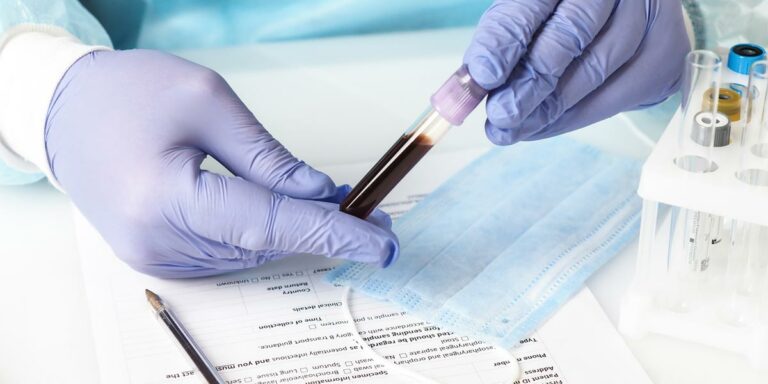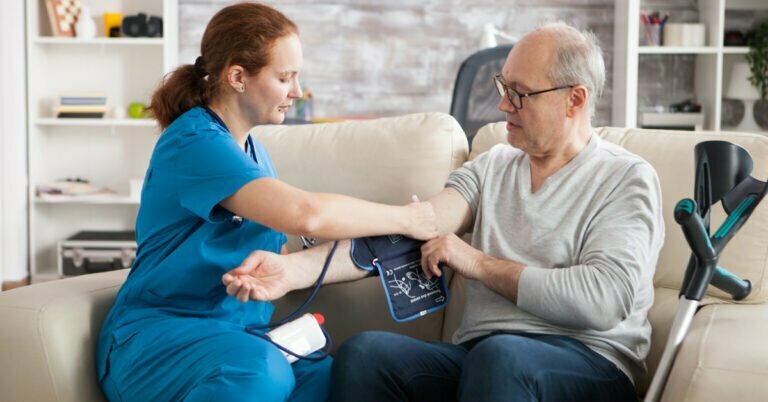On November 24, 2021, South Africa gave notice to the World Health Organization (WHO) to identify a new SARS-CoV-2 variant, B.1.1.529. It was later named Omicron as a variant of concern due to several mutations that may affect how it behaves or spreads. Omicron has been found in 23 countries across the world and several cases of the Omicron variant have been detected in the United States. Additional possible cases are being investigated.
Here are frequently asked questions about the Omicron variant:
1. Does the Omicron variant cause severe COVID-19 infection?
It is unknown if Omicron causes more severe disease than Delta as of this writing. Due to the small number of cases of the Omicron variant, determining disease severity is difficult. There is still no evidence that Omicron symptoms are distinct from other variants. Initial infections were among younger people with milder disease but determining the severity of the Omicron variant will take days to weeks. All COVID-19 variants, including the dominant Delta variant, can cause severe disease or death, especially in the most vulnerable.
2. Do vaccines work against the Omicron variant?
The authorized COVID-19 vaccines for use in the United States are highly effective at preventing severe disease and death. However, they are not 100% effective, and some people who have been fully vaccinated may catch the virus due to a breakthrough infection.
The CDC estimates that more than 198 million Americans are fully immunized, and that more than 44 million Americans have received their booster dose as of December 4, 2021. However, low vaccination coverage may increase the number of cases, which raises the likelihood that variants will emerge.
3. Does COVID-19 treatment work against the Omicron variant?
According to WHO, corticosteroids and IL6 Receptor Blockers will continue to treat patients with severe COVID-19 effectively. Further studies will evaluate other treatments to see if they are still effective considering the changes to the virus in the Omicron variant.
4. Is Omicron more transmissible than Delta variant?
Although the number of positive tests affected by this variant has increased in South Africa, epidemiologic studies continue to determine whether this is due to Omicron or other factors. It is currently unknown how efficiently the Omicron variant spreads from person to person compared to other variants, including Delta. The changes in the spike protein indicate that the Omicron variant is more likely to transmit than the original SARS-CoV-2 virus. Still, it is difficult to say whether it is more transmissible than Delta.
5. Can Omicron variant be detected through RT-PCR?
As with previous variants, the widely used PCR assays continue to detect infection, including infection with Omicron. Other tests, including rapid antigen detection tests, are being studied to establish any effect.
6. I’ve been infected with COVID-19 before. Is it still possible for me to be infected with Omicron variant?
Preliminary research suggests that individuals who have previously had COVID-19 may be more susceptible to reinfection with Omicron than with other variants of concern. Unfortunately, there are currently no data available on the ability of sera from vaccinated individuals or those who have previously been infected with SARS-CoV-2 to neutralize the Omicron variant. There will be more information available in the days and weeks to come.
7. How do we avoid being infected with Omicron?
While public health experts have advised caution, emphasizing that there is no conclusive evidence that Omicron is more hazardous than prior SARS-CoV-2 variants such as Delta, preventative methods are necessary to decrease Omicron transmission, as with other variants.
This includes the following:
- Using face masks in public indoor areas with high transmission
- Maintain a physical space of at least one meter from others
- Opening windows to improve ventilation and avoiding poorly ventilated or crowded areas
- Frequent handwashing
- Getting vaccinated when it’s their turn
How Remote Patient Monitoring (RPM) Helps During COVID-19
The COVID-19 resulted in a paradigm shift in the delivery of health care, allowing for increased use of telehealth and RPM for acute disease monitoring. RPM benefits providers by reducing viral transmission among COVID-19 patients without adversely affecting patient assessment and treatment. In addition, it enables providers to treat chronic and low-risk patients by capturing and transmitting patient health data via linked devices outside of a traditional clinical care setting, reassuring those who are isolated at home that their providers are still monitoring them.
Takeaway
The discovery of Omicron has caused widespread concern around the world. This underlines the serious importance of vaccination, boosters, and general preventive strategies for COVID-19 protection.
References:
- https://www.cdc.gov/coronavirus/2019-ncov/science/science-briefs/scientific-brief-omicron-variant.html
- https://www.who.int/news/item/26-11-2021-classification-of-omicron-(b.1.1.529)-sars-cov-2-variant-of-concern
- https://www.who.int/news/item/28-11-2021-update-on-omicron








